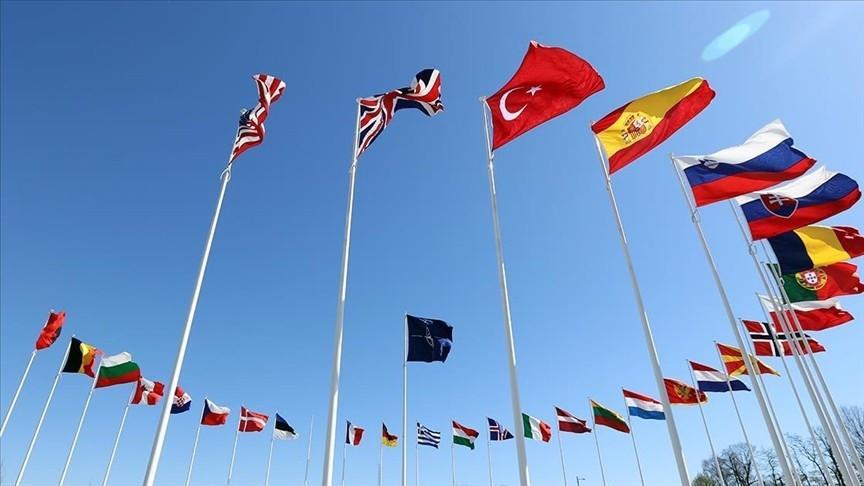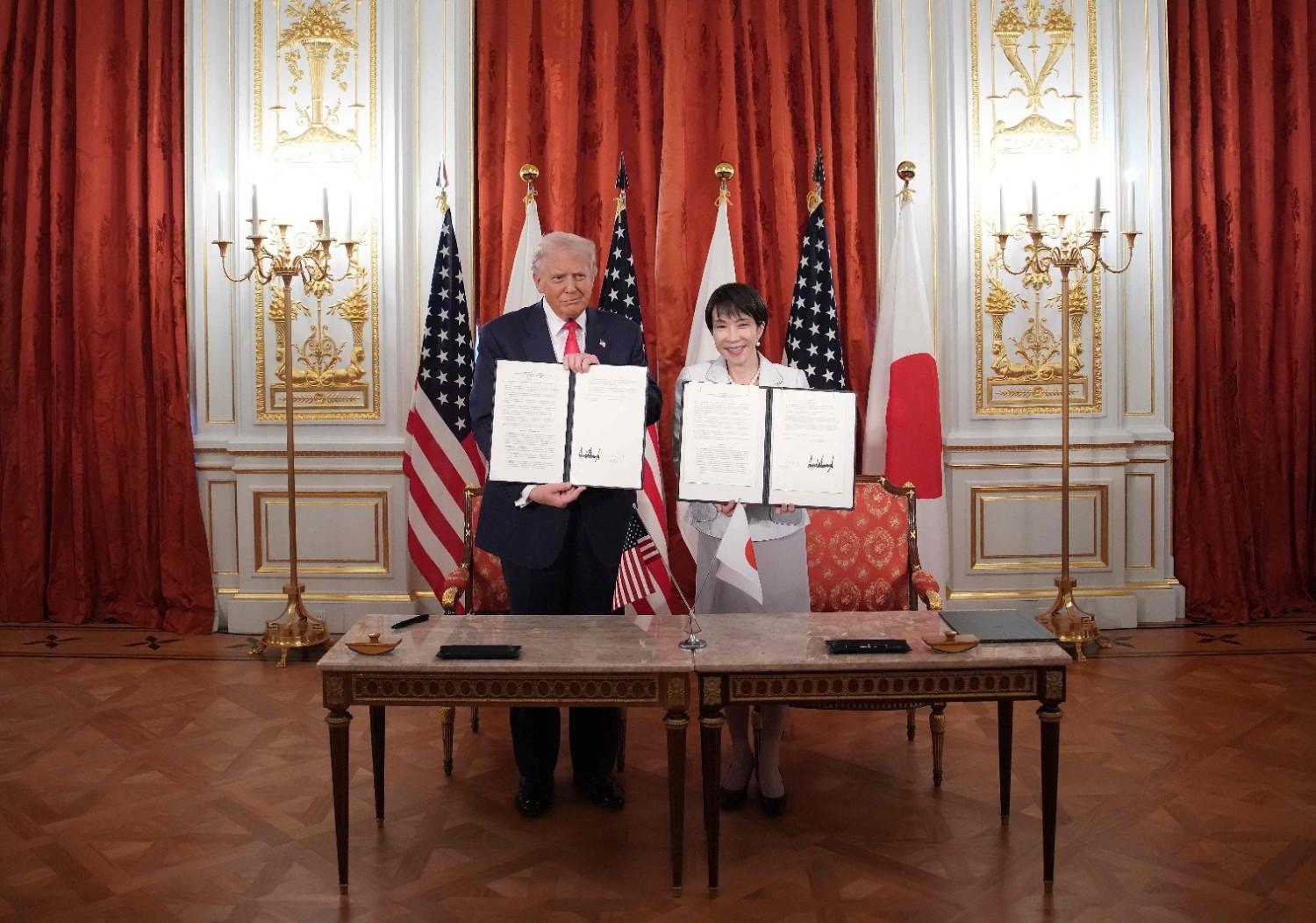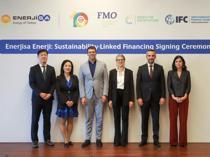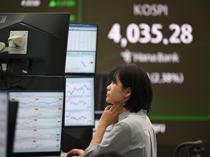China pitches ASEAN pact as alternative to US protectionism
KUALA LUMPUR

China's Premier Li Qiang, left, and Malaysia's Prime Minister Anwar Ibrahim, right, witness the signing ceremony for the ASEAN - China Free Trade area 3.0 upgrade by China's Commerce Minister Wang Wentao, second left, and Malaysia's Minister of Investment Abdul Aziz in Kuala Lumpur, Malaysia, Tuesday, Oct. 28, 2025. (AP Photo/Vincent Thian)
China signed an expanded version of a free trade agreement Tuesday with the Association of Southeast Asian Nations, with Chinese Premier Li Qiang pitching expanded economic ties with his country as an alternative to the protectionist policies of U.S. President Donald Trump.
Li Qiang told an ASEAN-China summit meeting after the signing that closer cooperation could help overcome global economic uncertainties. He said “pursuing confrontation instead of solidarity brings no benefit” in the face of economic coercion and bullying, in a swipe at the U.S.
“Unity is strength,” he said, citing remarks by President Xi Jinping made during a Southeast Asia visit earlier this year.
The signing of the ASEAN-China Free Trade Area 3.0 came on the final day of the annual ASEAN summit and related meetings and was witnessed by Li Qiang and Malaysian Prime Minister Anwar Ibrahim, who is serving as ASEAN chair this year.
It’s the third revision of the long-standing agreement, which was first signed in 2002 and came into force in 2010. The free trade area covers a combined market of more than 2 billion people and lowers tariffs on goods and boosting flows of services and investment.
Two-way trade has surged from $235.5 billion in 2010 to nearly $1 trillion last year.
Li stressed “mutual reliance” between China and ASEAN members Brunei, Cambodia, East Timor, Indonesia, Laos, Malaysia, Myanmar, the Philippines, Singapore, Thailand, Vietnam, calling them “good neighbors and good brothers that are close in geography, culture and sentiment.”
Southeast Asian political analyst Bridget Welsh said the upgraded pact would benefit both sides, especially in the areas of supply chains and sustainability.
“It also speaks to a global reality that non-U.S. countries are coming together to strengthen trade relationships for their prosperity as a recoupling with the U.S. is ongoing,” she said,
The prospect of a deepening trade conflict between China and the U.S. has risked weakening economic growth worldwide.
But a U.S.-China trade deal appeared to be drawing closer, officials from the world’s two largest economies said on Oct. 26 as they reached an initial consensus for President Donald Trump and Chinese leader Xi Jinping to aim to finalize during their high-stakes meeting.
Trump is set to meet with Xi tomorrow in South Korea, the final stop of his trip through Asia.
















